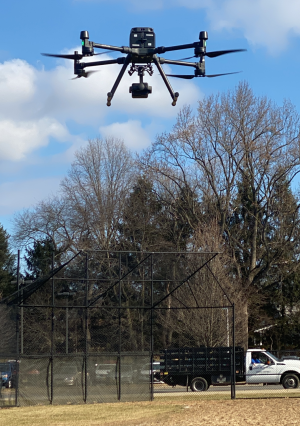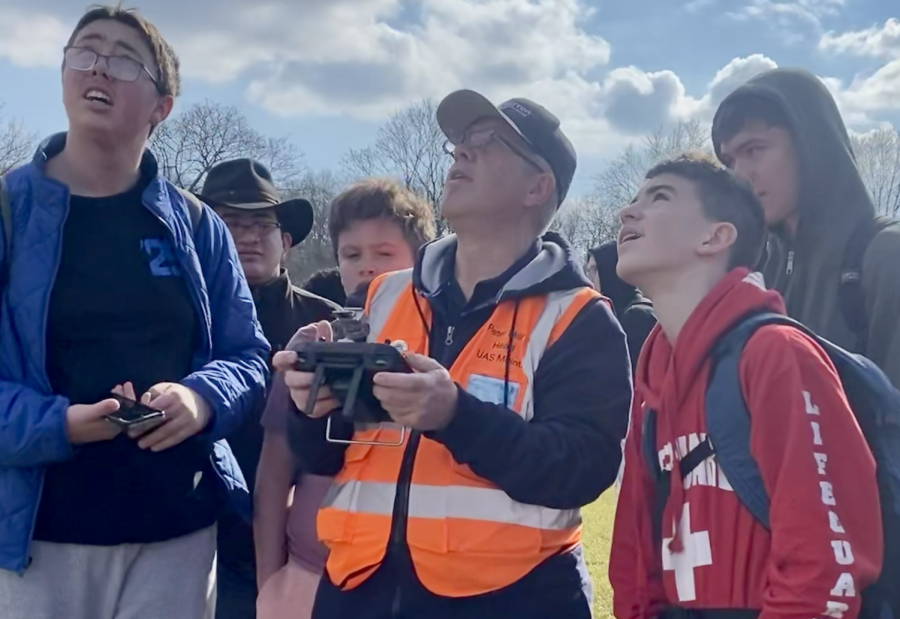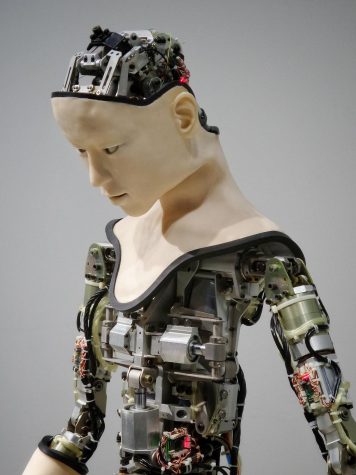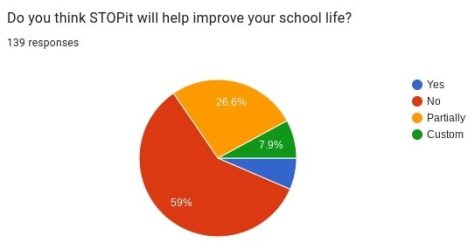Drone Flight Demonstration Takes Off
Warren Hills students recently took part in a presentation about drone programs at Warren County Community College (WCCC), where they learned about piloting aircraft, repairing and maintaining robots, and designing and building drones.
The drone fleet that The Unmanned Systems Program contains is aerial vehicles, ground vehicles, crop-spraying ground drone vehicles, underwater robots, and gigantic drones that weigh 66 pounds dry and more than 100 pounds when wet. The main brand names the program owns are BGI Drones, Wingtra, Census Mantaro, and over 30 more.
“We started off as a program that is dedicated to training students to fly safely and within the rules set by the Federal Aviation Administration,” said Dr. Sankar Sai, director of The Unmanned Systems Program. “We aim to become the most comprehensive drone training program in the country.”
The program allows students to practice with drones by loaning the devices to interested students.
There are few requirements to be able to join the program, but the main requirement is a high school diploma. The related programs that WCCC offers are the Associate of Science degree, the Drone Pilot Certificate, and the Drone Repair and Maintenance Certificate.
The Associate of Science is a two-year program, while the Drone Pilot Certificate and the Drone Repair and Maintenance Certificate are one-year programs that feed into the two-year program.
The drone presentation in January “taught me about what pathways and the different fields you can take within robotics,” said Warren Hills sophomore Brady Witt. “I thought it was informational, and it interested me more about robotics. It was overall an interesting presentation, and I would recommend it to anyone considering learning more about robots.”
Drones are considered part of the robotics family. They consist of remotely operated navigation equipment capable of flying from one destination to another, controlled remotely from the ground by human operators.
Drones are used extensively for activities as diverse as law-enforcement surveillance, search-and-rescue operations, weather forecasting and roadway traffic monitoring.
Armed drones have been used by countries’ militaries for several years. Such drones again captured international headlines in early March (2023) during the Russia-Ukraine war, when the Russian government accused the Ukrainian military of employing a drone to attempt to strike a gas facility near residential neighborhoods around Moscow.
As for peacetime drone usage, The Unmanned Systems Program at WCCC maintains a dedicated drone port here in Washington.
The drone presentation involving Warren Hills students featured two robot demonstrations.
The first demonstration involved the Boston Dynamic Robot Dog. This robot, whose price tag is about $75,000, is shaped like a dog and can pick up items with its “mouth.” It can carry items weighing up to 10 pounds and drag anything that weighs up to 40 pounds. It travels at up to three miles per hour and can dance, run and stand on its hind legs.
The second demonstration involved students learning how to work a drone control panel.
Sai enumerated a variety of reasons why people should consider flying drones and why they should use the WCCC program.
He said that the college has one of the most hands-on programs of its kind in the United States, offers future-ready careers, ensures that the program is affordable to students, and boasts a program that is certified by the Federal Aviation Administration and the Association for Uncrewed Vehicles Systems International.






